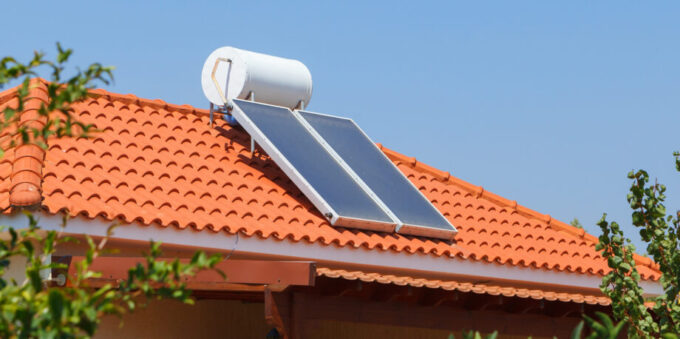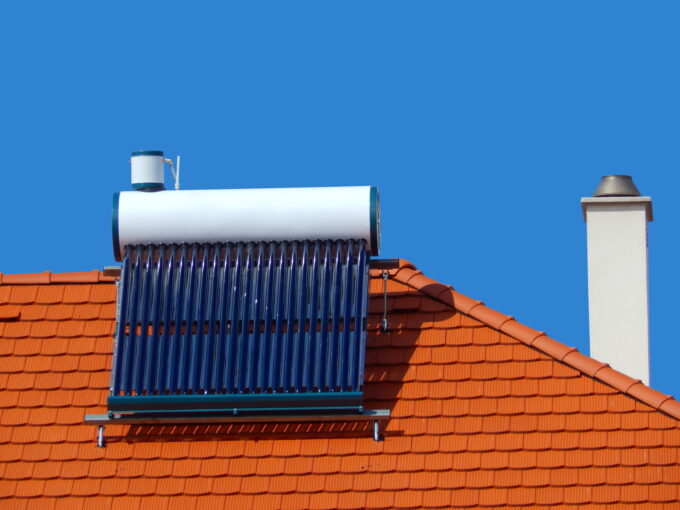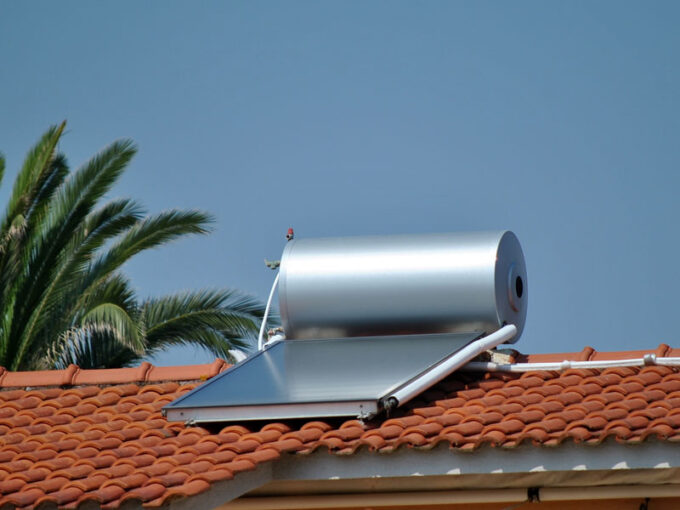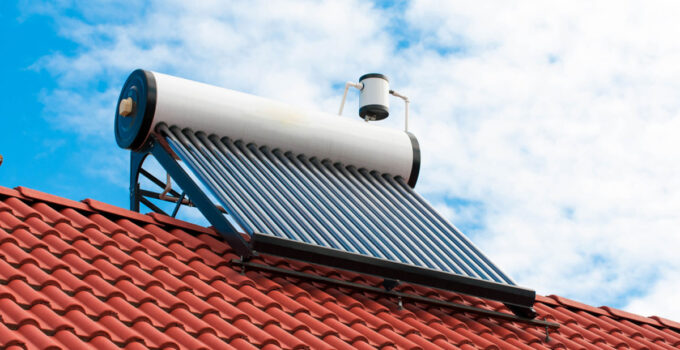Your home’s water is heated using a solar water heating system (also known as solar thermal panels). Is solar thermal technology the best option for your home? Solar thermal technology is a renewable alternative to conventional heating systems that is becoming increasingly popular. This article will talk about solar water heaters and how hot the water can get.
What is a Solar Water Heater?

Source: ensia.com
SWH does not heat water using grid power, unlike conventional heaters. Instead of using your rooftop’s general solar collectors, these energy-efficient gadgets use specialized solar collectors. Your home’s water is then heated using the solar energy that has been collected.
Since they lower your electric bill and let you heat your water using pure energy, SWH has historically enjoyed enormous popularity. Without supplying any further solar power to your home, the solar collectors heat your water directly.
Various Solar Water Heating System Types
The technologies and solar collectors used in SWHs might vary.
Solar heating systems can be divided into two categories: active and passive.
- Passive: Passive Solar panels are less expensive and more reliable but are also less efficient. The use of the passive heating method is very common today. This approach is beneficial if the terrace of your building has enough room and exposure to sunshine.
- Active: Compared to passive solar systems, active solar systems are more advanced and have two types of water circulation systems: direct systems, which perform well in non-freezing areas, and indirect systems, which are best suited to freezing temperatures.
How To Get The Most Out Of A Solar System?

Source: energysavingtrust.org.uk
An SWH system has many benefits, and its drawbacks can be avoided by having it professionally installed. To determine whether the roof can sustain the panels, installers can inspect it. They can also examine the shading and other elements that could affect effectiveness.
Professional installers can also assist you in maximizing the system’s potential. They might also maximize roof space so that photovoltaic systems and water heating elements can be incorporated, in addition to an ideal layout. These can provide additional heating capacity with their electricity. In actuality, mixing several panel types results in high energy efficiency. To get a solar water heater installed, visit solarwaterheaterkenya.com.
What Temperature Can a Solar Hot Water Heater Reach?
When the sun is shining brightly, SWHs can heat water to 60-90 degrees celsius. To create hot water on overcast days, the solar hot water system’s pipes are designed to absorb heat even when the sun isn’t directly shining on them.
The solar hot water systems have controller devices built to prevent the antifreeze from freezing in cold weather or being excessively hot.
It is possible to save 70–80% on fuel or power costs by employing an SWH system for any application that requires steam production using a boiler or steam generator. By switching from a traditional water heater to an SWH system, a home can save 70–80% on its electricity or fuel costs. According to usage and the need to refill fuel, SWH systems are recognized to have the fastest investment recovery time, which ranges from 2 to 4 years.
How To Choose a Suitable Solar Water Heater?

Source: volksenergie.in
An SWH is the most superb option if you’re seeking household renewable energy sources that produce hot water using only natural energy. Finding a practical heater system can be challenging due to the abundance of SWH suppliers on the market. These systems reduce fuel use and electricity costs and are economically advantageous. You may choose the best heater using the following criteria:
- Budget: Your budget is one of the most important considerations when choosing a water heater. It delineates the line between your basic needs and your purchasing power. Finding practical and affordable SWH systems can be difficult, particularly for people without prior research or understanding of these systems. Take advantage of your research and knowledge.
- Verify The Testimonials: Always pick at least two or three online rivals who are the greatest in the industry. You can research them online and read customer reviews before making a decision. Check out their websites to check if their customers are happy with the services they provide. Nowadays, the majority of businesses are open enough to disclose their standing in the industry. You can pick a competition if they have a lot of positive testimonials and suggestions.
- Ask Concerning The Installation Procedure: The business itself should be in charge of the entire installation process. Make sure you find out in advance what services they offer and whether they are willing to install it at your property. Once they have inspected the area, they will be able to advise you on where to install it so that you can get the most out of your solar water heating system.
- Governmental Support: We get one step closer to saving our environment by employing renewable resources. As a thank you for lowering carbon footprints and maximizing sun energy utilization, the government offers us subsidies. All that is required from you is the balance due after government deductions because subsidies lower our installation costs.
- Warranty Period: An investment in a solar water heating system often lasts long. Check out the warranty time that your company is offering you as a final step. An effective solar water heating system typically lasts at least 15 years. You have made the best system choice for yourself if your company offers you a good warranty duration.
Conclusion
Although SWH systems have benefits and drawbacks, they are dependable and effective. Planning and appropriate installation enable homeowners to make the most of them, avoid some of the disadvantages, and enjoy all the advantages that the right system and size can provide.
The use of several conventional resources is decreased by a fundamental household solar water heating system. Because it is environmentally benign, it cuts the cost of power and lessens the negative environmental effects associated with other fossil fuels. In several nations now, it is used.







